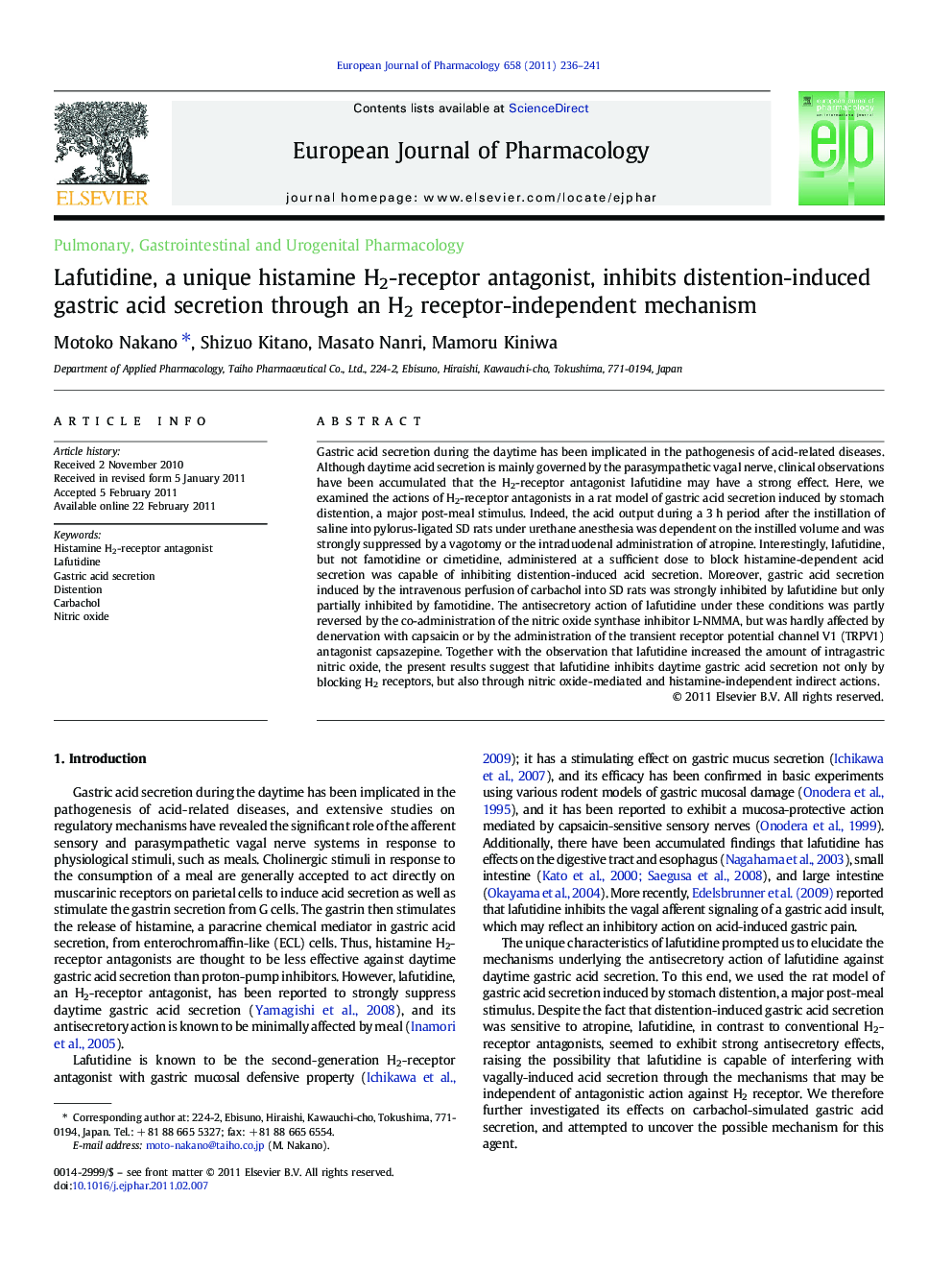| Article ID | Journal | Published Year | Pages | File Type |
|---|---|---|---|---|
| 2532954 | European Journal of Pharmacology | 2011 | 6 Pages |
Gastric acid secretion during the daytime has been implicated in the pathogenesis of acid-related diseases. Although daytime acid secretion is mainly governed by the parasympathetic vagal nerve, clinical observations have been accumulated that the H2-receptor antagonist lafutidine may have a strong effect. Here, we examined the actions of H2-receptor antagonists in a rat model of gastric acid secretion induced by stomach distention, a major post-meal stimulus. Indeed, the acid output during a 3 h period after the instillation of saline into pylorus-ligated SD rats under urethane anesthesia was dependent on the instilled volume and was strongly suppressed by a vagotomy or the intraduodenal administration of atropine. Interestingly, lafutidine, but not famotidine or cimetidine, administered at a sufficient dose to block histamine-dependent acid secretion was capable of inhibiting distention-induced acid secretion. Moreover, gastric acid secretion induced by the intravenous perfusion of carbachol into SD rats was strongly inhibited by lafutidine but only partially inhibited by famotidine. The antisecretory action of lafutidine under these conditions was partly reversed by the co-administration of the nitric oxide synthase inhibitor L-NMMA, but was hardly affected by denervation with capsaicin or by the administration of the transient receptor potential channel V1 (TRPV1) antagonist capsazepine. Together with the observation that lafutidine increased the amount of intragastric nitric oxide, the present results suggest that lafutidine inhibits daytime gastric acid secretion not only by blocking H2 receptors, but also through nitric oxide-mediated and histamine-independent indirect actions.
